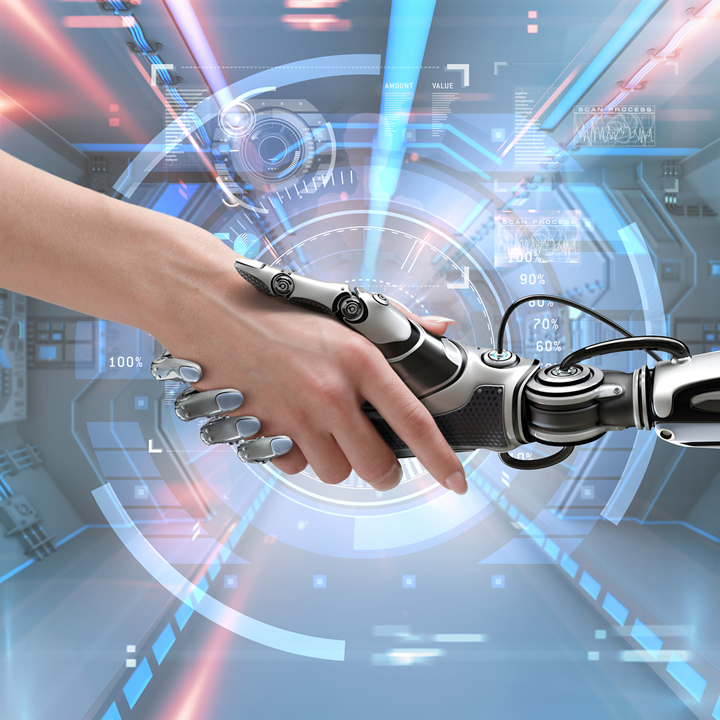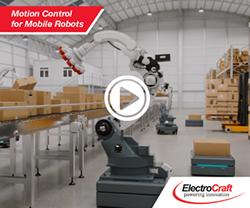The next wave of humanoid robotics: how emerging tech is reshaping the future of automation

The future of automation isn't just evolving – it's undergoing a revolutionary transformation that will reshape how we think about human-machine collaboration.
As the founder of Humanoid and someone who's been in the tech startup space for over a decade, I've seen firsthand how advanced technologies can transform industries as well as how quickly this transformation can take place.
The U.S. manufacturing sector faces critical challenges, with Deloitte and The Manufacturing Institute projecting a need for 3.8 million new employees by 2033, of which 1.9 million could remain unfilled without intervention.
Despite the clear advantages of robotic systems over traditional manufacturing methods, widespread adoption has faced hurdles. Traditional automation solutions often require significant infrastructure changes, specialized expertise, and substantial capital investment.
For example, Automated Guided Vehicles (AGVs) and conveyor systems have revolutionized material movement in warehouses. Yet the real automation challenge lies in complex tasks requiring human-like dexterity—from picking and sorting to assembly—where traditional industrial robots still fall short without costly infrastructure overhauls.
Pre-programmed industrial robots excel at repetitive tasks like welding and painting, but they lack the flexibility and adaptability of the human body, especially when it comes to intricate assembly line operations. Add to this the compatibility issues between different robotic solutions, and it becomes clear why many labor-intensive operations remain stubbornly resistant to automation.
This is precisely where the next wave of robotics needs to focus: developing solutions that can match human dexterity while seamlessly integrating with existing infrastructure.
Here are some of the ways automation is likely to evolve and make an impact on how organizations operate and compete.
Humans Focusing on High-Value Tasks
By freeing employees from repetitive tasks and automating monotonous jobs like packaging or material handling, businesses can allow employees to focus on higher-value activities such as customer service or product development.
This shift not only boosts productivity but also enhances employee satisfaction and drives organizational growth.
Accelerating Operations, Boosting Revenue
Automation speeds up production, enabling companies to meet higher demand and shorten turnaround times. Rather than displacing workers, successful automation solutions typically enable businesses to scale their operations and increase capacity, creating new opportunities for growth.
For example, a robotic assembly line can significantly reduce manufacturing time, allowing businesses to capture more sales opportunities.
Modern robotic systems can operate continuously with precision, enabling organizations to meet increasing demands while maintaining consistent quality standards.
Commitment to Quality and Consistency
Automation minimizes human error, ensuring a consistent level of precision. An automated quality control system can improve product reliability and reduce waste, which in turn can help enhance customer trust in the business and strengthen brand reputation.
Humanoid's solutions aim to transform manual jobs and reduce errors in manufacturing, warehouses, logistics, and retail, enhancing precision in repetitive, dangerous, and mundane tasks.
Revolutionizing Work
Humanoid robots represent a transformative solution to critical global workforce challenges. Our innovative approach addresses labor shortages, demographic shifts, and the need for advanced automation by developing general-purpose robots that seamlessly integrate into human-designed environments.
Our hardware and software are being developed to guarantee the high efficiency and speed of manipulation, with the goal of reducing the total cost of ownership (TCO) suitable for mass commercialization. It will make our robots more affordable than traditional industrial automation systems and accessible to businesses with tighter budgets. This opens new doors for efficiency and growth.
Moreover, adaptability, customizability and modularity are central to our designs. The human form mirrors the human ability to perform countless tasks using hands, tools, and intricate movements. Our humanoid robots are built to tackle a wide range of jobs across industries—from automating assembly lines in manufacturing to managing inventory and customer service in retail. Their hardware and software are designed using a modular concept, which allows the incorporation of different upper-body, lower-body, and end-effectors depending on the environment. And exchangeable garments ensure the robot is tailored to the requirements of each use case.
Finally, we prioritize user-friendly implementation. Recognizing that many companies don’t have teams of specialized engineers, we design robots that are easy to integrate and operate and don’t require frequent maintenance while being 100% safe. We aim to empower businesses across industries to adopt advanced automation seamlessly and quickly without needing extensive technical expertise.
By making automation accessible, affordable, and adaptable, Humanoid is helping companies unlock new levels of productivity and competitiveness in a rapidly changing world.
We're not just offering products—we’re reshaping the way businesses think about and use technology to thrive in an increasingly automated future.
The trend towards simplifying and democratizing automation was clear at Chicago's recent International Manufacturing Technology Show (IMTS) 2024. Osaro showcased their Robotic Bagging System, which uses AI to learn on the fly, allowing for quick adaptation to changing inventory without time-consuming training. This kind of flexibility is crucial for companies that need to respond rapidly to any market changes.
At Humanoid, we're committed to pushing the boundaries of what's possible in automation.
Our focus on safety, modularity and reliability ensures that advanced robotics can be integrated effectively across various operational contexts, maximizing return on investment while minimizing disruption. We're creating solutions that will define the future of human-machine collaboration and help redefine human potential.
Artem Sokolov is a global investor and entrepreneur, founder of Humanoid. Successfully took over a family business and grew it to a $1B capitalization. Founder and General Partner of SKL.vc, a data-driven venture builder.
Featured Product

